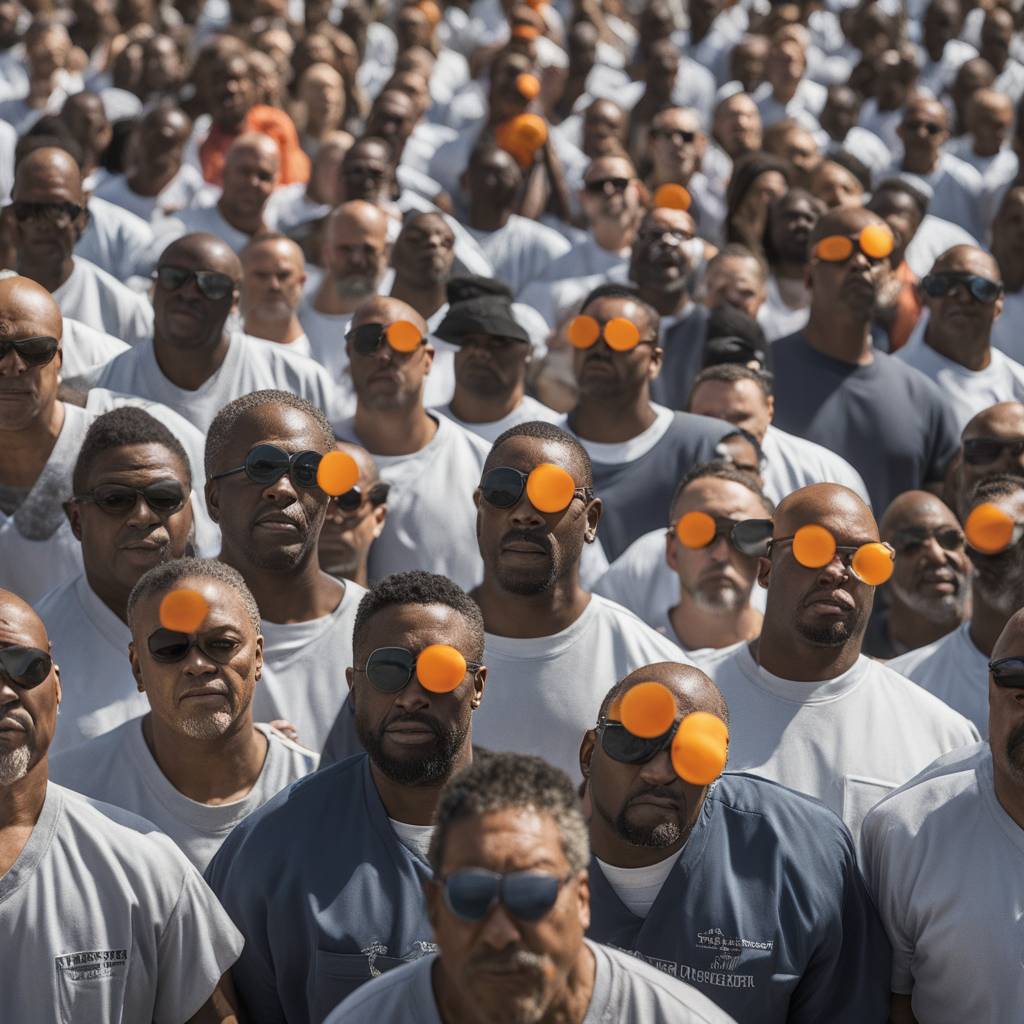Several inmates at the Woodbourne Correctional Facility in New York are suing the corrections department over its decision to lock down prisons during the upcoming total solar eclipse. The inmates, who come from various religious backgrounds, argue that the lockdown infringes on their right to practice their faith, as solar eclipses are considered significant events for many religions. The rare eclipse, last seen in 2017 and not happening again until 2044, has led to this legal challenge.
The lawsuit was filed in federal court by six inmates, including an atheist, a Baptist, a Muslim, a Seventh-Day Adventist, and two practitioners of Santeria. The inmates claim that the lockdown violates their constitutional rights by preventing them from participating in a religiously significant event. Despite their convictions for crimes such as rape, sexual assault, murder, and weapon possession, the inmates argue that they should still be allowed to observe the eclipse in accordance with their faith. The acting commissioner for the state Department of Corrections and Community Supervision issued a memo in March detailing the lockdown procedures for the eclipse.
On April 8, all prisons in New York will operate on a holiday schedule, and inmates will be returned to their housing units at 2 p.m. on the day of the eclipse. Visitation at more than two dozen corrections facilities will be suspended, while visits at other facilities will end at 2 p.m. Normal operations will resume on April 9. The Department of Corrections and Community Supervision will distribute solar eclipse safety glasses to staff and inmates so they can view the phenomenon safely. The department has stated that it does not comment on pending litigation, but it is taking steps to ensure the safety and security of all inmates and staff during the eclipse.
The inmates involved in the lawsuit argue that a solar eclipse is a rare, natural phenomenon with great religious significance to many people, and they should have the right to gather, celebrate, worship, and pray during such an event. Despite their criminal convictions, they feel that the lockdown prevents them from exercising their faith, which is a violation of their constitutional rights. The inmates come from a diverse range of religious backgrounds, including atheism, Baptist, Muslim, Seventh-Day Adventist, and Santeria, further highlighting the importance of religious freedom in correctional facilities.
Some of the inmates involved in the lawsuit have been convicted of serious crimes such as rape, sexual assault, attempted murder, and manslaughter. However, they argue that their religious beliefs are still valid and should be respected, even while incarcerated. The lawsuit raises important questions about the rights of inmates to practice their faith while serving time in prison, and whether the corrections department’s decision to lock down facilities during the eclipse infringes on those rights. The outcome of this legal challenge could have implications for how prisons accommodate religious practices in the future.
The Department of Corrections and Community Supervision has made arrangements to ensure the safety of all inmates and staff during the eclipse. In addition to distributing solar eclipse safety glasses, the department will operate on a holiday schedule and suspend visitation at certain facilities to maintain order and security. Despite the department’s efforts to address the concerns raised in the lawsuit, the inmates remain resolute in their belief that they should be allowed to observe the eclipse in accordance with their faith. As the legal battle continues, it remains to be seen how the courts will ultimately rule on this matter and what impact it will have on religious freedom within the prison system.













